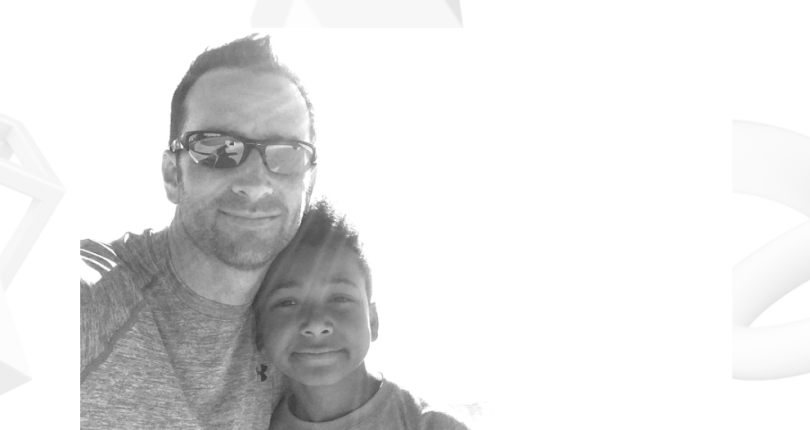Sure, the latest initiatives from the Teslas, Apples and Googles of the industry tend to dominate the tech news space — and with good reason. Still, the big guns aren’t the only ones bringing innovation to the sector.
In an effort to highlight up-and-coming startups, Built In is launching The Future 5 across eight major U.S. tech hubs. Each quarter, we will feature five tech startups, nonprofits or entrepreneurs in each of these hubs who just might be working on the next big thing.
* * *
Chicago is one of the country’s major cities, and thus an economic hub. So not only do numerous major corporations call Chicago home, the city is also a breeding ground for entrepreneurs who want to turn their idea into a reality.
For that reason, Built In has created a list of new or small Chicago-based startups that are doing interesting things. Despite flying under the radar now, these companies have the potential to evolve into something big.

Blaze Global (Edtech)
There are plenty of facts you probably remember from school, like the fact that Columbus sailed the ocean blue in 1492 and that the mitochondria is the powerhouse of the cell. But school is also meant to teach other important lessons, like how to make friends, how to behave in a group setting and how to express yourself. Yet these lessons aren’t necessarily taught through a structured curriculum.
Justin Lyons founded Evanston edtech startup Blaze Global in response to the relationship he had with his son. Lyons loved his son, but often found himself too busy to spend as much time with him as he would like to. As a result, he didn’t feel like a very good dad. On top of that, his son was struggling in school.
Eventually, Lyons became more intentional about spending time with his son. He asked his son about the specific actions he could do to make his son happier — like reading with him, playing together, etc. — and he noticed a difference in his son’s behavior after doing these things.
Lyons launched Blaze Global to help other parents who struggle to give their kids what they need emotionally. Since its launch, Blaze has turned into an edtech platform that helps teachers, students and parents develop structure around how they learn emotional life skills. This involves things like daily self-awareness check-ins, mood tracking, a library of small actions that can guide emotional development and more. The platform also allows adults to customize the platform in order to create personalized results, and provides an analytics dashboard to track progress.
Especially after more than a year of remote schooling, kids need support for their social and emotional development. Blaze Global hopes to give that support.
Chaos (Mobile)
Some people are very good at organizing their thoughts. They can structure their ideas a certain way, write them down, walk away for a bit, then come back later and know exactly where they left off. Other people aren’t so good at this. Thoughts can come all at once, or can be few and far between. They can follow a linear pattern, or can be disorganized and indecipherable by anyone else. But that doesn’t mean those ideas aren’t valuable.
During the first few months of quarantine, Brian Ficho spent a lot of time with his thoughts. He decided that it would be a good idea to write down all those thoughts in order to declutter his brain. As an entrepreneur, he was used to writing down business ideas, but he decided it was worth recording his feelings, observations, points of view or anything that could help him process what was going on around him. In about three months he had written down 2,500 thoughts.
I was trying to look deeper into my own mind.”
“I was writing down general observations about the world, predictions for the future, insights and things like that. During the process of doing this, I felt like I was thinking more clearly than ever. So I did some research, which backed up what I was feeling, that writing down your thoughts has a ton of benefits for productivity and mental health. So this was something I wanted to keep doing for the rest of my life,” Ficho told Built In.
“But the experience of doing this was absolutely terrible,” he added. “The flows, the features, everything was just wrong. I was using a note-taking app. But I wasn’t trying to take notes. To me, a note is a piece of static information that I take during the meeting, or doing research. But ideas are very different. An idea is somewhat alive. I wanted to think through these ideas and turn them into something more to take action on. I was trying to look deeper into my own mind.”
This is what led Ficho to start Chaos, a note-taking app that is so much more than a note-taking app. Using Chaos is simple, the user opens up the app to record a thought by talking into a microphone or typing it out. Then on the backend, the app uses artificial intelligence, natural language processing and search indexing to make connections between the individual thoughts. It’s almost like the app is doing the thinking for you.
Right now, Ficho and the Chaos team are working on the app’s beta, with a larger release planned some time for the future. But Ficho is hopeful, because he sees this app helping so many different types of people — from entrepreneurs, to creatives, to people just looking to declutter their mind and improve their mental health.
“This is for anyone with thoughts that wants to do more with those thoughts. Anyone is a potential user,” Ficho said.

Nande (Travel)
Even if you’ve lived in Chicago your whole life, there are plenty of things you have yet to discover in your own city. And Nande wants to show you what they are.
Nande is a media and travel company that helps its members discover amazing experiences in Chicago. For $5 a month, members get access to weekly city guides that include carefully planned itineraries to explore different parts of the city. Nande also provides a concierge service allowing members to text the company with any questions they might have about those experiences or events. Lastly, Nande provides access to deals, which the company says helps cover the cost of the monthly subscription fee.
“We’re creating a new style of travel content aimed at locals looking for more thoughtful coverage of their city. Instead of top 20 hot dog listicles and low-effort travel meant to upsell you on a booze cruise, we publish a weekly series of ‘city guides’ — originally produced photo essays that each stitch together places from around the city into an afternoon outing or a neighborhood excursion. And while most media publications and other travel apps shove a bunch of ads and pop-ups in your face, we’ve designed an ad-free, mobile app experience that’s focused on our content and makes it easier for users to explore neighborhoods and places that they might not otherwise think to visit,” Nande co-founder Andrew Tran told Built In.
He continued, “We like to think of each city guide as a bite-sized itinerary that tells you what to do, where to go, when to do it and how to do it. Our aim is to take the burden of planning off of our readers. To create these guides, we go out ourselves with our cameras and notepad in hand to document our own first hand experiences, and we make sure we give you all the information to do it yourself.”
Tran and his co-founder Chris Stavitsky founded Nande in 2016. After years of building up the company without outside funding, Nande finally launched its mobile app in September 2020. Tran hopes that Nande will help people rediscover their city, after more than a year of lockdown during the Covid-19 pandemic.
Over the years, Nande has exchanged thousands of texts with members in order to help plan dates, host family members visiting from out of town and even assist with weddings.

PechaKucha (Events)
Storytelling is one of humanity’s oldest traditions, and chances are that it will never go out of style. But much like stories themselves, the practice of storytelling can morph over time and be influenced by new formats in order to resemble something new.
Based in Chicago and Tokyo, PechaKucha is a storytelling platform that takes the concept of “show-and-tell” and turns it into something unique.
The company was originally founded by a pair of Tokyo architects in 2003. They named it “PechaKucha” because that translates to “chit-chat” in Japanese. Originally, the company hosted live events, where a host would give a presentation with 20 images, and talk about each image for 20 seconds. This forced the host to tell their story in a quick, yet engaging way.
There are many stories being told on PK that aren’t being told elsewhere.”
This format was a hit, and over the years PechaKucha’s events grew organically. Since the company’s launch, PechaKucha has hosted thousands of events attended by millions of people across the world.
“We use time to keep people concise. Speakers can be verbose and our platform gives them time parameters,” PechaKucha CEO Sean Smyth told Built In. “Speakers are forced to keep their talks high-level and build in rehearsals to practice the timing for each slide. This results in better content and keeps audiences engaged.”
He continued, “Second, our platform spans digital and physical storytelling. Whether you’re sharing virtually or in person, we support both event types. Third, PechaKucha creates strong network effects – meaning, there are many stories being told on PK that aren’t being told elsewhere. Because these stories are so unique, they bring people together who are more likely to stay connected after their initial shared event.”
But in 2020, the company was ready to transform. The global pandemic and rise of virtual events forced PechaKucha to reassess its old ways. This led the company to develop PK Create, a digital storytelling tool that lets anyone create their own 20x20 presentation with recorded audio and uploaded images.
Right now, PK Create is in beta, but the plan is to release it to a wider audience soon. The company also raised a seed funding round in late June in order to support this new growth, and it’s currently hiring to expand its small team.
“Most immediately, we plan to scale our team from five people to up to 20. We’re looking for software developers and marketers to work in Chicago to build a new front end for our website and native mobile app, and help us ramp our digital user base from 100,000 to 1 million,” Smyth said.

Visual Feeder (Marketing Tech)
The Covid-19 pandemic wreaked havoc on local independent businesses. Many of these businesses had to shut down for good, which resulted in abandoned storefronts all over the city and left neighborhoods feeling very different.
Although these empty storefronts tell a sad story, they create an opportunity for something new to rise from the ashes.
Chicago startup Visual Feeder is a new breed of advertising company, that takes high-tech immersive displays and puts them into storefronts to create the billboards of the future.
Visual Feeder was launched in 2019 by siblings Yaxi and Eddie Yang. The Yang siblings grew up in a family of artists, which gave them an appreciation for visual experiences. It was this artistic eye that allowed them to look at empty storefronts as blank canvases.
We are able to display brand messaging in a much more dynamic, immersive and measurable way than any other form of out-of-home advertising today.”
“Visual Feeder grew organically through our curiosity of ways visual media and projection mapping technology engages and immerses onlookers. As we experimented with projection mapping, we realized that we could utilize this technology to help brands and advertisers inspire people through visual experiences. We began testing this by creating immersive indoor activations and later expanded to outdoor activations using vacant storefront windows as a canvas for unique brand campaigns,” Yaxi Yang told Built In.
She continued, “The positive chain of reactions we saw when we launched these activations helped us gain a stronger sense of validation that we were building a business that added value to every party involved in what we were creating, artistically and technologically.”
On top of its beautiful displays, Visual Feeder uses technology and real-time analytics to track how onlookers are engaging with each installation. This gives brands more insight into how their advertising is working than a traditional billboard.
Visual Feeder was part of Techstars Chicago’s class of 2020, allowing the business to position itself for future growth. Visual Feeder has created video campaigns for Adidas, Lyft, TEDx and other well-known brands.
“Visual Feeder is uniquely positioned to help brands catch people’s attention through our dynamic, full-motion displays occurring at eye-level in large media format. In the past, the only tools that even approached something remotely close to this outcome such as fixed LED displays, digital billboards, etc. were often expensive, limited in dynamic range and also not positioned at the eye-level of potential onlookers,” Yaxi Yang said. “We are able to display brand messaging in a much more dynamic, immersive and measurable way than any other form of out-of-home advertising today.”




